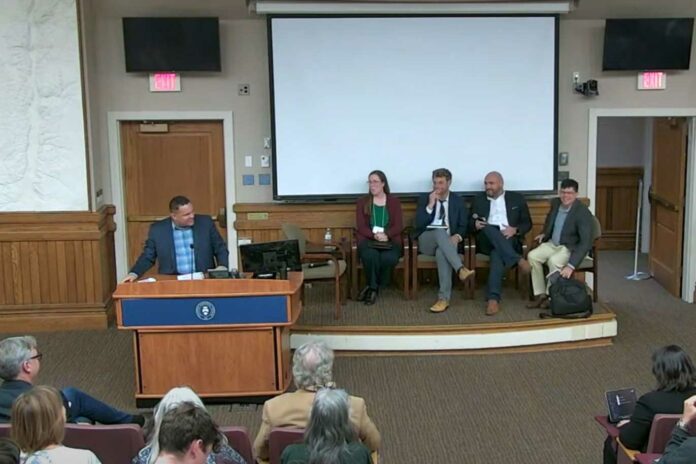Several speakers noted that Zionism is a common feature in worship and politics among charismatic Pentecostals who also advance Christian nationalism. Chaves said, “When Trump was trying to move the embassy (to Jerusalem), you could see them pushing in Brazil also.”
Barreto said that, while televangelist Paula White has connected Trump to apostolic networks, Silas Malafaia, a Brazilian Pentecostal televangelist, has played the same role for Bolsonaro, a Catholic who appeals to Brazil’s right-wing evangelicals.
Malafaia “is not a thinking head of that movement,” Barreto said in his lecture. “He is repeating the same discourse that we are hearing from other apostolic voices,” including that “Brazil belongs to Jesus Christ” and that cultural Marxism, feminism, abortion, the LGBTQ+ community and the whole left are enemies to be fought, Barreto said.
The rise of Christian nationalism in Brazil is pushing some people out of the church, but others are forming a resistance, Barreto told RNS.
Vozes Marias, or Maria Voices and Novas Narrativas Evangélicas, or New Evangelical Narratives, are among the groups led by young people “from the peripheries, the favelas,” that have both stepped up, Barreto said.
Miranda Zapor Cruz, a professor of historical theology at Indiana Wesleyan University, says the rise of Hispanic Christian nationalism is replaying some debates about new prophecy in the early church.
“Those who are part of these movements affirm a version of modern-day Gnosticism and Montanism that rejects the authority of creedal Christianity in favor of new revelation that has authority,” Cruz said.
(This story was reported with support from the Stiefel Freethought Foundation.)
This article originally appeared here.

